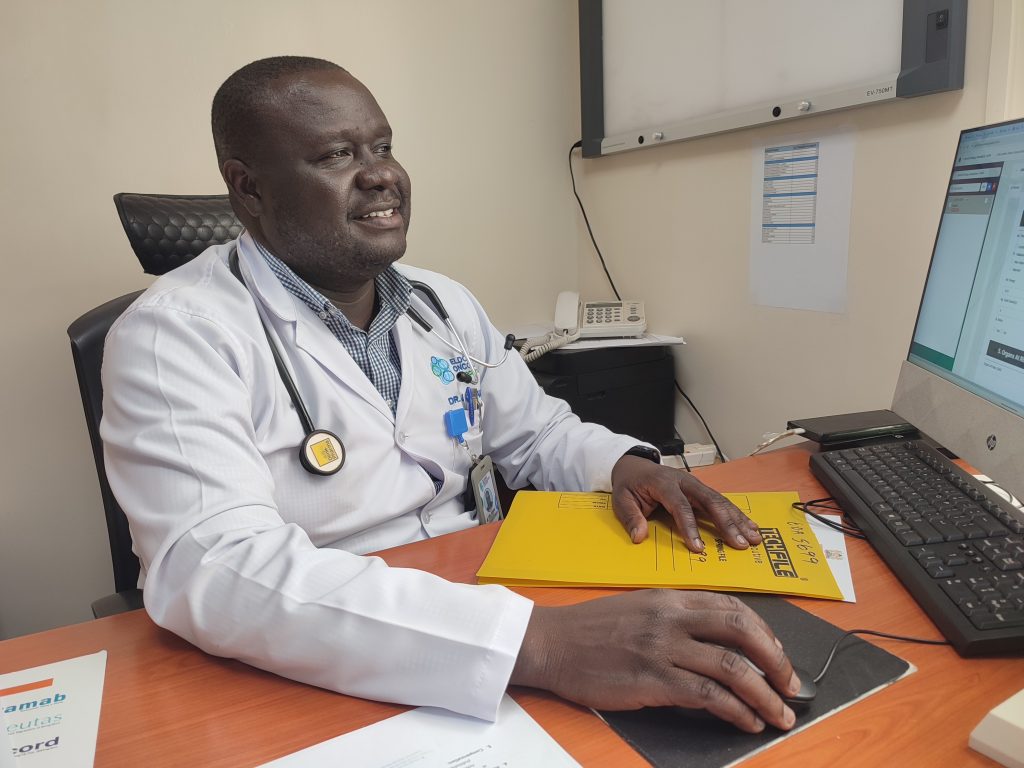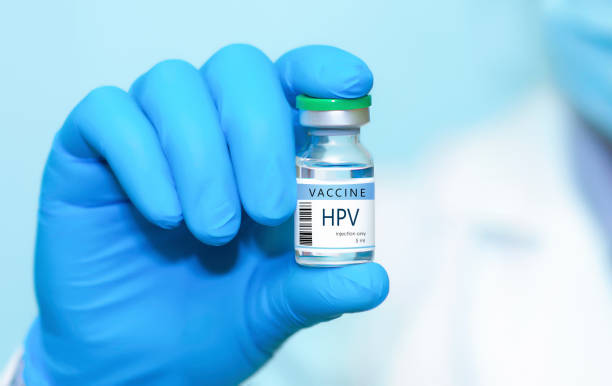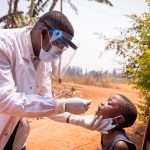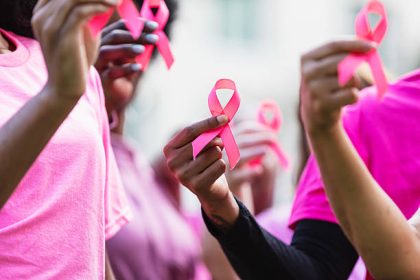Boys need to get HPV vaccination to reduce spread of cervical cancer while multiple sexual partners increase risk of HPV-which also causes genital warts, penile, mouth, throat and anal cancers.
One morning six years ago, Pamela Savai’s routine was interrupted by a poster that would change her life—a call for free cervical cancer screening at Nairobi’s Uhuru Park.
“Out of curiosity, I decided to go for a screening. Mind you, I was a strong, healthy woman without the slightest symptoms of any sickness, let alone cancer,” she told Willow Health.
During screening, Savai was confused by the facial expression of a medic who called another nurse to examine her. “I instantly panicked. ‘Do I have cancer?’ she asked the nurse did not affirm her fears, “but she told me further tests were needed to ascertain whether an infection I had was linked to cervical cancer or not.”
Savai was directed to take a pap smear and colposcopy

A pap smear tests cervical cells for cancer risk, while a colposcopy checks the cervix for abnormalities. If needed, a biopsy can confirm precancer or cancer. It took a long while between the tests as Savai was short on cash.
“It was hectic. The costly procedures dented my budget as I had to settle most of the bills out of pocket,” says Savai.
Eventually, a biopsy confirmed she had stage 1 (a) cervical cancer. Six years later, Savai says being alive is a miracle, as at the time, she considered her diagnosis a death sentence.
“I feared losing my life and leaving my daughters orphaned,” says Savai. “Their dad had died two years earlier.”
However, a doctor told her that stage 1 (a) had very high chances of being successfully treated.
“The doctor’s assurance and my faith in God kept me strong through the treatment process, and finally, the cancerous tumour was successfully removed as it had barely spread,” offers Savai, adding that financial and emotional strains are the hardest to deal with.
Prevention through vaccination and awareness
Savai advocates for cancer screening and the HPV vaccine, which protects against cancers and genital warts caused by human papillomavirus (HPV).
The vaccine is recommended for pre-teens before they become sexually active for protection against exposure to HPV. Savai’s two daughters have since been vaccinated, and “that’s the best gift I can give them for their health.”
She reckons one of the biggest challenge now is low cervical cancer awareness due to stigma and misinformation. “Women and girls, especially from rural areas, lack knowledge of cervical cancer and how to reduce the risk of new infections. There is also stigma because of the part of the body that the disease affects, and many myths and misconceptions have been built around that, limiting success rates,” expounds.
This January, Kenya joined the world in marking Cervical Cancer Awareness Month, themed around ‘Research and Prevention’ on the backdrop of grim statistics.
For starters, cervical cancer kills nine women every day and over 3,000 annually, and Global Cancer (GLOBOCAN) data from 2022 indicates that cervical cancer contributes to 5,236 new cases and 3,211 deaths annually.
Kenya records 40.1 new cases diagnosed per 100,000 women annually. Further statistics from the National Cancer Registry show that Kenya recorded 5,845 new cases annually, with 3,591 deaths in the same period.
HPV vaccination: Myths, facts, and wider protection
Dr Jesse Opakas, a clinical and radiation oncologist at Eldoret Oncology Associates, and a specialist in solid tumours, described cervical cancer as a tumour of the cervix, a body part between the uterus and the vagina that holds a foetus in the uterus.

“Tumours that develop on the cervix are known as Squamous Cell Carcinoma (SCC) and cause 99% of cancers. SCC in the cervix is caused by human papillomavirus infection,” says the oncologist, noting that infection is preventable through vaccination against HPV 16 and HPV 18 strains.
There are 40 different HPV strains, and 80% of sexually active people will get an HPV infection in their lives. Some HPV strains progress to cervical cancer.
Since 2019, Kenya has given HPV vaccines targeting girls aged 14 years and below, courtesy of Gavi Vaccine support, as part of routine shots, aiming to stop cervical cancer before it starts.
“The vaccine targets children between 10 and 12 years, just when they are becoming sexually active. We can also vaccinate adults up to the age of 26. Those above 40 years can be vaccinated after testing negative for HPV,” explains Dr Opakas.
Besides cervical cancer, HPV can also cause genital warts, penile cancer, and mouth and throat cancers (oral pharynx cancers). About 90% of anal cancers are caused by HPV, but the vaccine can reduce the risk of getting these cancers.
Myths and misinformation around HPV vaccines are blocking efforts to cut cervical cancer cases, warns Dr Opakas, as “myths like sterility and infertility made parents bar their children from getting the vaccine.”
He adds that the vaccine is administered to both boys and girls, men and women, which is a standard procedure in Nordic countries for boys and girls to be vaccinated.
“Boys are HPV vectors, and when they get vaccinated, they reduce the spread of the virus and reduce their risk of getting penile cancer,” says Dr Opakas, adding that having multiple sexual partners increases cervical cancer risk through HPV infections.
Dr Korir Kiplimo, a lecturer at Maseno University, says immunisation is a sure way of reducing new cervical cancer cases and calls on the public to embrace safe sexual behaviour.
Amos Okwaro, a resident of Lugari at the Uasin-Gishu-Kakamega border, confirmed he knew about the importance of HPV vaccinations as cervical cancer is “caused by HPV that could be domiciled in men’s semen. Experts say we should be vaccinated to protect our spouses. But our spouses should also be faithful or run the risk of getting the virus from unvaccinated men.”
But Okwaro doubted whether many in his community knew how they could help stop cervical cancer, yet “The vaccine is free in all public health facilities; if more people are made aware and guided on this, we’ll surely reduce, curb, and eventually eradicate cervical cancer.”
Trizah Muthoni, a psychologist in Eldoret, goes for pap smear tests about every two years, but “the pap smear test process is very invasive and could scare women, especially those who have not had a baby before.”
During the rollout of the HPV vaccination in 2019, Dr Rose Jalang’o of the National Vaccines and Immunisation Programme said that unless concerted efforts to prevent and control HPV were put in place, the cervical cancer incidence would rise to 7,057 cases per year, with 4,869 (about 69%) annual deaths.





















